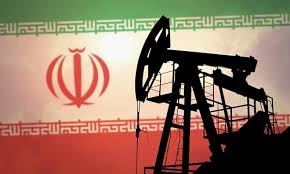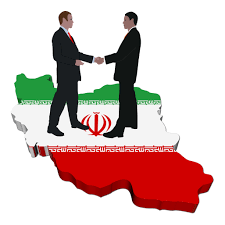Learning from Schlumberger’s Mistakes: Doing Business Under Iran General License H
 Lauren Connell, Managing Associate at The Volkov Law Group, rejoins us for a posting on sanctions compliance. She can be reached at [email protected].
Lauren Connell, Managing Associate at The Volkov Law Group, rejoins us for a posting on sanctions compliance. She can be reached at [email protected].
Implementation Day has been hailed as a new stage in Iran-US relations. There has been significant media coverage of how sanctions are being lifted, with various outlets suggesting that Iran is now “open for business.” In reality, that is far from true. The sanctions lifted are limited to “secondary sanctions” that had been in place, imposing various restrictions on non-U.S. entities. U.S. entities are still barred from almost all transactions with Iran.
But OFAC’s newly released General License H offers U.S. entities a glimmer of possibility. General License H allows U.S. businesses to set up foreign subsidiaries who are “authorized to engage in transactions, directly or indirectly, with the Government of Iran[.]” Businesses that see real opportunity in Iran will be allowed to pursue it, subject, of course to a whole host of restrictions.
But since sanctions prohibiting U.S. entities from conducting business in Iran remain in place, how exactly a U.S. business explores its opportunities in Iran is a complicated question. OFAC offers guidance in the General License H terms. U.S persons are explicitly allowed to undertake activities required to establish a U.S.-owned/ controlled but foreign-operated subsidiary, such as setting up operating policies and procedures and allowing access to automated information systems platforms (those that operate passively and without human intervention.
Aside from these initial set-up and limited ongoing exceptions to the general ban, U.S. persons and entities will be prohibited from managing a foreign subsidiary who is doing business in Iran, this means no day-to-day oversight or project management.
This is a tougher mandate than it sounds like, just ask Schlumberger.
On August 7, 2015, OFAC announced its enforcement action against Schlumberger for violations of Iran and Sudan sanctions. The enforcement action reads like a list of what to watch out for in operating a foreign subsidiary under General License H.
Schlumberger’s operations provided support to projects in Iran and Sudan, OFAC cited:
- Approving and denying capital expenditure requests for projects in Iran and Sudan, such as for the manufacture of new tools
- Directing the movement of equipment to and from projects in Iran and Sudan
- Making and implementing business decisions for projects in Iran and Sudan
- Troubleshooting mechanical failures and sustaining sophisticated equipment in Iran and Sudan
These are precisely the type of day-to-day project decisions headquarters usually makes and which local offices sometimes cannot make themselves. Global companies are used to consolidating operations and benefit from the efficiencies that result. De-centralizing management can be expensive and confusing.
 Which is why companies must be very careful when deciding to conduct business under General License H, it is trickier than you might first think to truly separate global operations from a subsidiary. You have to look at everything: where payroll is administered, managing equipment inventory and maintenance, resource planning, and human resources, and make sure that the foreign subsidiary set up is truly separate.
Which is why companies must be very careful when deciding to conduct business under General License H, it is trickier than you might first think to truly separate global operations from a subsidiary. You have to look at everything: where payroll is administered, managing equipment inventory and maintenance, resource planning, and human resources, and make sure that the foreign subsidiary set up is truly separate.
It is possible, with care and deliberate design, to set up a foreign subsidiary with its own operations. But a company has to be fully committed to building and maintaining an ongoing compliance program to ensure sanctions are not violated to avoid making the same mistakes Schlumberger did.
















1 Response
[…] Read Full Article: Learning from Schlumberger’s Mistakes: Doing Business Under Iran General License H – Corrupt… […]